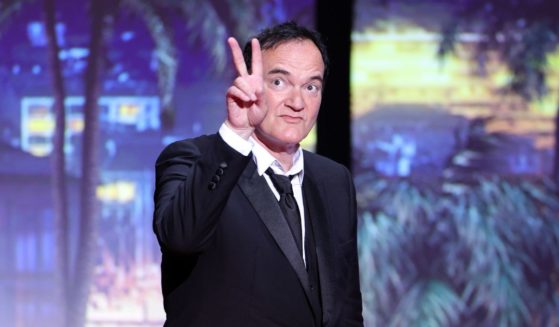The New Yorker Has MLK Spinning in His Grave With Cover "Tribute"
Iconic civil rights leader Dr. Martin Luther King, Jr. famously said “I have a dream” as he spoke of men and women being judged by the content of their character, and not the color of their skin.
But apparently the liberals at The New Yorker magazine thought he said “I’ll take a knee” and make everything about race, at least if the latest cover of their upcoming “tribute” to King is any indication, according to The Daily Wire.
The cover, which is dated Jan. 15, 2018, features King with interlocked arms between ex-San Francisco 49ers quarterback Colin Kaepernick and Seattle Seahawks defensive lineman Michael Bennett.
The two race-baiting football players and the anti-racism civil rights leader are seen taking a knee in protest together.
Wow. This is the new cover of The @NewYorker.
Incredible. pic.twitter.com/Rjbhzcx7MP— Andscape (@andscape) January 8, 2018
According to The New Yorker, the cover was designed by a Bay Area artist named Mark Ulriksen, who asked himself, “What would King be doing if he were around today?”
Apparently this liberal artist thinks MLK Jr. would be unpatriotically protesting his country by worthlessly taking a knee during the national anthem instead of marching and preaching and making an actual difference to effect positive change in his community.
You know, like he actually did 50 years ago when he marched and preached and peacefully advocated positive change across the entire country.
“This is 49er country, and my mom and I have been going back and forth — she’s upset that players have brought politics into sports, but I say, How would you feel if you had to show up at work every day and salute a country that treats black people like second-class citizens?” Ulriksen explained.
“I’m glad that Colin Kaepernick and Michael Bennett are making it political,” he continued. “I’m sure that if King were around today, he’d be disappointed at the slow pace of progress: two steps forward, twenty steps back. Or ten yards back, as the metaphor may be.”
Not to presumptuously speak to the political positions of people who are no longer able to speak for themselves, but we have a hard time seeing Dr. King joining in with the anti-American protests of the national anthem.
King’s message was one of love, peace and understanding — a coming together of all races to set aside differences and be treated equally to make society a more harmonious place. This cover does more to dishonor his legacy than pay “tribute” to the great civil rights icon.
The muddled message of the kneelers, when they can even articulate it, is one of angry divisiveness, race-baiting against law enforcement and disparagement of the country as a whole.
Dr. Martin Luther King, Jr. stood for what he believed in and took action to make the country better. He certainly didn’t kneel in spiteful protest of this great nation.
H/T WZ
Please share this story on Facebook and Twitter so everyone can see how The New Yorker thinks Dr. Martin Luther King, Jr. would be addressing the problems in society these days.
Truth and Accuracy
We are committed to truth and accuracy in all of our journalism. Read our editorial standards.












